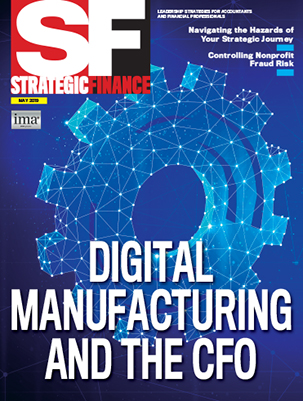DEDUCTING BUSINESS MEALS
Prior to this change, entertainment expenses were 50% deductible if the taxpayer could show that the purpose of the cost in question was directly related to or associated with the taxpayer’s business. Taxpayers also could deduct 50% of such costs if there was a business discussion before or after the entertainment event.
The tax code still allows deductions for business meals, generally limited to 50% of the cost of the meal. Thus, the cost of meals while traveling for business would be 50% deductible by the company. Employees on accountable plans (i.e., those who will be reimbursed for expenses while traveling) won’t feel the effect of the change in tax policy related to income or deductions, and the employer bears the 50% meal disallowance.
In the case of a meal that involves the taxpayer and a client or customer, however, a question arises as to whether the situation is really a business meal or entertainment. This is particularly true if the taxpayer isn’t traveling away from home and thus wouldn’t normally be entitled to a 50% meal deduction if the client weren’t present. Regulation §1.274-2(b)(1) includes language indicating that providing food to a customer may constitute entertainment. Thus, there was concern that the new rules would eliminate the ability to deduct meals with clients altogether. At the same time, the legislative history of this provision indicates that Congress wanted to continue to allow the deduction of food expenses related to the operation of the business. A broad reading of congressional intent would seem to allow these types of meal expenses to continue to be 50% tax-deductible. These factors, combined with the specific language in the law, make it unclear exactly how client meals would fit into the picture.
IRS GUIDANCE
To help address the concerns and reduce some of the uncertainty, the IRS has provided interim guidance in Notice 2018-76, which lists the provisions allowing these meals with clients to remain 50% deductible. There are five requirements for a meal to qualify:
- The meal must be an ordinary and necessary business expense that’s paid or incurred that year.
- The cost of the meal can’t be lavish or extravagant.
- The taxpayer (or an employee of the taxpayer) must be present at the meal.
- The meal is provided to a current or potential business customer, client, consultant, or similar business contact.
- If the meal occurs with entertainment, then the food and drinks must be either purchased separately from the entertainment or stated separately on the invoice or receipt.
For example, an attorney has season tickets to sporting events that he uses to entertain clients for business purposes. These tickets previously were 50% deductible as long as he and his client discussed business immediately before or after the game. Similarly, the cost of food and drinks at games was also 50% deductible. The TCJA changes now mean the cost of those tickets is nondeductible, even if they were used to entertain a client. The cost of the food and drinks, however, is still 50% deductible in this example since they meet the five requirements of Notice 2018-76.
Contrast this with a separate taxpayer who also has a box suite at the same sporting event to provide clients with food and entertainment, but the latter are billed as a single amount rather than broken out separately. Prior to the TCJA, the cost of the box itself wasn’t deductible, but the cost of the comparable number of seats and the amount related to meals were both 50% deductible. After the TCJA, however, the entire amount is nondeductible since the costs for the food and entertainment are combined. If the taxpayer is able to pay for the food separately, or if the facility will invoice the food separately, then that part would still be 50% deductible according to Notice 2018-76. To make sure taxpayers or food providers don’t get out of line by reclassifying entertainment costs as meals, the rule contains an anti-abuse provision that disallows inflating the cost of food and drinks.
Other changes enacted by the TCJA will make it more important that employers use an accountable plan for qualifying meal expenses. In particular, IRC §67 has been amended so that miscellaneous itemized deductions subject to the 2% of adjusted gross income (AGI) limitation are disallowed from 2018 through 2025. This means that an employee who isn’t reimbursed through an accountable plan won’t receive the personal itemized deduction for business meals that he or she would have received in the past.
At some point, this interim guidance will be replaced by proposed regulations providing more details about when 50% deductions on these types of meals will be allowed and when they will be disallowed because they’re considered entertainment expenses. Until those regulations are issued, however, taxpayers are allowed to rely on the guidance in this notice. Ideally, future regulations will have the same broad type of client meal rules contained in the notice. In addition, even without Notice 2018-76, the law in IRC §274 retains the rules allowing full deductions for food expenses that are treated as compensation, qualifying recreational expenses for employees (e.g., holiday parties), and items available to the public.
© 2019 A.P. Curatola

May 2019



